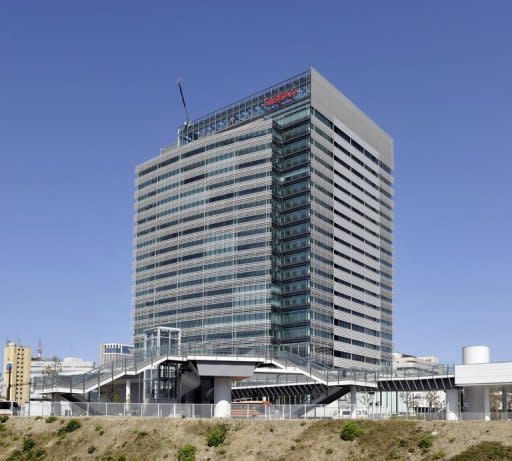Britain and Japan pledge joint defence projects
Britain and Japan pledged on Tuesday to expand collaboration on defence equipment as Prime Minister David Cameron looked to prise open Tokyo's potentially lucrative arms market. On a brief visit to Japan, Cameron and his Japanese counterpart Yoshihiko Noda agreed to co-operate on projects as Britain seeks to cash in on a relaxation of Japan's strict rules on weapon exports. In a joint statement released after a brief meeting in Tokyo, Cameron and Noda said their two countries would be searching out ways to work together. They agreed "to identify a range of defence equipment for joint development and production (and) to seek to launch at least one programme of such defence equipment as soon as possible". The statement, which was short on specifics, came after Cameron said Britain was keen to become "Japan's partner of choice" alongside Tokyo's major ally the United States for defence industry collaboration. Cameron, who has headed Britain's coalition government since May 2010, brought a phalanx of businessmen with him during a trip in which he met Japan's ageing emperor, who earlier this year underwent heart surgery. Tokyo is keen to forge new defence partnerships after loosening its decades-old self-imposed ban on weapons exports. Tuesday's agreement will pave the way for Britain to become only the second country to have any kind of defence collaboration with Japan, after the United States. The ban, lifted in December, had prevented Japanese firms from joining international weapons projects, other than with the United States, and left Tokyo with little choice in where it bought its hardware. The easing of export restrictions means Japanese companies are now able to supply parts to foreign contractors, for example in Britain, who will be hoping to leverage their more advanced weaponry technology and sell finished products to Tokyo. Japan in December chose to buy the US-developed F-35 stealth jet for its next-generation fighter over the Eurofighter Typhoon, in a deal that is estimated to be worth $4.7 billion. Japan, whose industries took years to recover after World War II, declared in 1967 that it would tightly control its foreign weapons sales. But China's rise and East Asia's changing security environment -- as highlighted by the expected launch in the coming days of a North Korean rocket -- have nudged policymakers into the change. Meanwhile, on the business front, Cameron visited the headquarters of Nissan Motors, which announced it would produce a new midsize hatchback at its huge plant in Sunderland in the north of England from 2014. The move will come with a fresh investment of 127 million pounds ($200 million) from Nissan, along with an 8.2 million pound grant from the British government's Regional Growth Fund. The announcement came only a month after the number-two Japanese automaker said it would start building a new compact hatchback model, called "Invitation", at the same factory from mid-2013 with investment worth $198 million. Production of the two models will create more than 3,000 jobs in Britain, said Nissan, which was yet to disclose other details of the model. Cameron welcomed the announcement, saying it was "a huge vote of confidence in the skills and flexibility of the UK workforce". "It's proof of the strength and vitality of the British manufacturing industry that leading companies like Nissan are expanding their production in the UK," he said, according to a Nissan statement. Cameron is expected to leave Japan for a brief tour of Southeast Asia starting on Wednesday.



